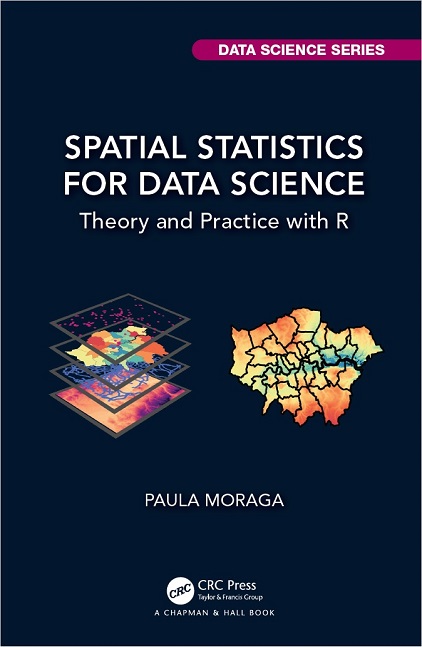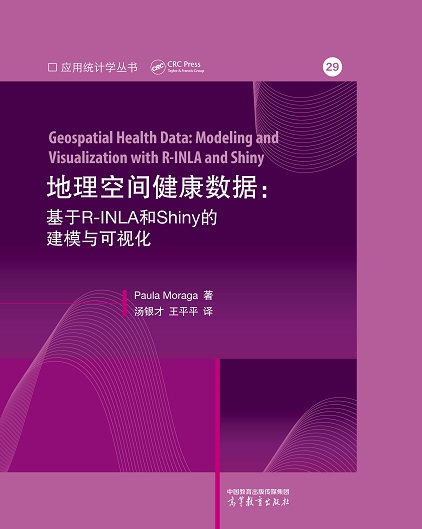Welcome!
I am an Assistant Professor of Statistics at King Abdullah University of Science and Technology (KAUST), and the Principal Investigator of the Geospatial Statistics and Health Surveillance (GeoHealth) research group. Prior to KAUST, I held academic statistics positions at Lancaster University, Harvard School of Public Health, London School of Hygiene & Tropical Medicine, Queensland University of Technology, and University of Bath. I received my Ph.D. in Statistics from the University of Valencia, and my Master’s in Biostatistics from Harvard University.
My research focuses on the development of innovative statistical methods and computational tools for geospatial data analysis and health surveillance, and the impact of my work has directly informed strategic policy in reducing the burden of diseases such as malaria and cancer in several countries. I have published extensively in leading journals, and I am the author of the books Geospatial Health Data: Modeling and Visualization with R-INLA and Shiny (2019, Chapman & Hall/CRC) and Spatial Statistics for Data Science: Theory and Practice with R (2023, Chapman & Hall/CRC).
I am the 2023 winner of the prestigious Letten Prize. Awarded by the Letten Foundation and the Young Academy of Norway, the prize recognizes young researchers’ contributions to health, development, environment, and equality across all aspects of human life.
Short Bio
I graduated in Mathematics from the University of Valencia with an Erasmus year abroad at the Johannes Gutenberg University of Mainz. Following graduation, I worked in a technological company developing algorithms for optimal investment strategies. After that, I enrolled in the Ph.D. program at the University of Valencia and worked at the office for regional statistics and the national cancer registry. During my doctoral studies, I was awarded the prestigious “la Caixa” Fellowship for studying my Master’s degree in Biostatistics at Harvard University, and this complemented my mathematical background with a solid knowledge in biostatistics and epidemiology. I also received an Ibercaja Research Fellowship to carry out a research project at Harvard Medical School, a stipend from Google Summer of Code to write code for the R project, and completed a traineeship at the European Center for Disease Prevention and Control (ECDC). During this time, I developed a number of disease surveillance methods which I implemented in the freely-available software R and SaTScan.
After obtaining my Ph.D. with Extraordinary Award, I was appointed to academic statistics positions at Lancaster University, Harvard School of Public Health, London School of Hygiene & Tropical Medicine, Queensland University of Technology, and University of Bath. During this time, I worked in statistical research, with a strong focus on spatial epidemiology and modeling, especially as it relates to spatial and spatio-temporal variation in infectious diseases and cancer. I developed modeling architectures to understand the spatial and spatio-temporal patterns and identify targets for intervention of diseases such as malaria in Africa, leptospirosis in Brazil, and cancer in Australia, and a number of R packages for Bayesian risk modeling, detection of clusters, and risk assessment of travel-related spread of disease.
In 2020 I joined KAUST as an Assistant Professor of Statistics, and as the Principal Investigator of the Geospatial Statistics and Health Surveillance (GeoHealth) research group. In the GeoHealth group, we develop frontier geospatial methods and computational tools for geospatial data analysis and health surveillance, and contribute to a wide range of collaborative projects to solve challenging problems in public health and make a positive impact on the world. Current methodological projects include the development of innovative spatio-temporal models for infectious diseases, and the development of approaches for the analysis of spatially misaligned data. Current applied projects include the assessment of short-term effects of temperature and air pollution on mortality, and surveillance methods for the early detection of disease outbreaks to inform the development of policies for prevention and control.
I have published extensively in leading journals in statistical methodology, software, and health and environmental applications. I serve as an Associate Editor of the Journal of the Royal Statistical Society Series A, and the rOpenSci’s project for developing a peer review system for statistical software. I have taught statistics and spatial epidemiology courses at both undergraduate and graduate levels at universities in the United Kingdom, Australia, Ethiopia, Spain, and Saudi Arabia, and I have been invited to deliver training courses on geospatial modeling, disease mapping, and the development of interactive visualization applications at international conferences and capacity building programs.
I have created educational materials that impact learning on a large scale, including my books Geospatial Health Data: Modeling and Visualization with R-INLA and Shiny (2019, Chapman & Hall/CRC) and Spatial Statistics for Data Science: Theory and Practice with R (2023, Chapman & Hall/CRC). The books describe spatial and spatio-temporal methods and visualization techniques to analyze georeferenced data in R. Specifically, the books show how to apply cutting-edge statistical techniques to quantify disease burden, understand geographic and temporal patterns, identify risk factors, and measure inequalities in different fields. They also provide the necessary tools to design and develop web-based digital applications such as disease atlases that incorporate interactive visualizations to make disease risk estimates available to a wide audience.
I am a member of R-Ladies Global, a worldwide organization to promote gender diversity in the R community. I am also part of Homeward Bound, a leadership initiative for women with a background in STEMM (Science, Technology, Engineering, Mathematics and Medicine).



